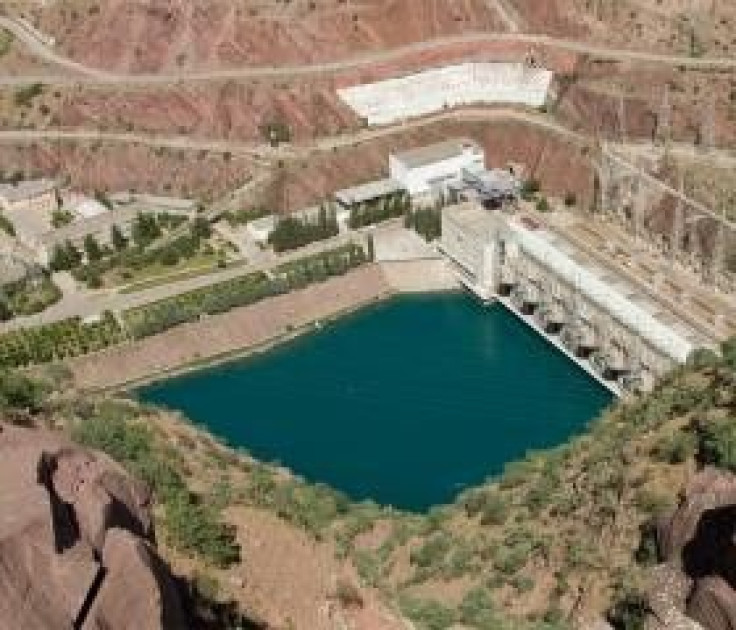Poverty-Stricken Tajikistan Looks To Hydropower To Solve Energy Needs

Tajikistan has agreed to work with the World Bank in assessing a hydropower project that has been causing strife in the region.
The poorest country in Central Asia, Tajikistan consumes upwards of 39,000 barrels of oil per day, most of which is imported from neighboring Uzbekistan, according the CIA World FactBook, and also imports 95 percent of the natural gas it consumes.
Due to high joblessness at home, as many as 1 million Tajiks now work abroad, primarily in Russia. More than half the population (53 percent) lives below the poverty line.
But what Tajikistan does have in its favor is the Amudarya, one of the longest rivers in Central Asia, and along with that, the greatest capacity for hydropower in Central Asia. Tajikistan currently produces about 14 billion kilowatt hours annually, and has the potential for more than 300 billion kilowatt hours.
As of September 2011, Tajikistan was planning the construction of four giant new hydropower facilities, using Russian and Iranian funding. But at least one of the projects -- on the Vakhsh river -- has sparked tensions in the region. Uzbekistan opposed the project, saying that it will harm the environment, and, in turn, the people who depend on the water in that region.
The Uzbek President Islam Karimov at one point outright called it "a stupid project." Tajikistan decided to go forward with the project anyway, citing large-scale power outages that have been plaguing the area in the past decade.
The Vakhsh project, the Roghun Dam, if and when completed, will be the world's tallest dam, at 1,099 feet (335 meters). Construction on the dam actually began in the mid-1970s, but ceased after the fall of the Soviet Union. In 1993, the 200 feet that had already been constructed was destroyed in a flood.
The World Bank is now stepping in to assess the project and attempt to mitigate the hard feelings. On Thursday, UN Secretary General Ban Ki-Moon expressed his support, in a statement, "for the World Bank's efforts to help Tajikistan address its energy challenges...and to continue with the independent, technical assessment of the proposed Roghun hydropower project."
The executive director of the United Nations Environment Programme Achim Steiner acknowledged the environmental challenges.
"From a security perspective," said Steiner, "Climate change, water, energy and agriculture constitute the main areas of interest for this report as they reveal the potential for increasing instability and even confrontation as more flows are impounded upstream reducing those water availability and quality downstream."
© Copyright IBTimes 2024. All rights reserved.












